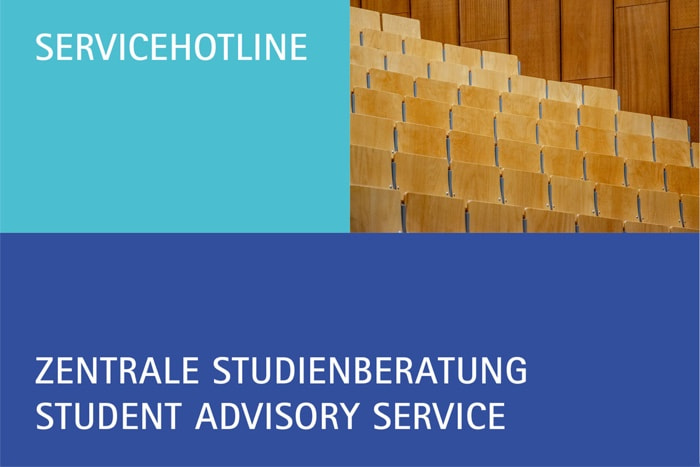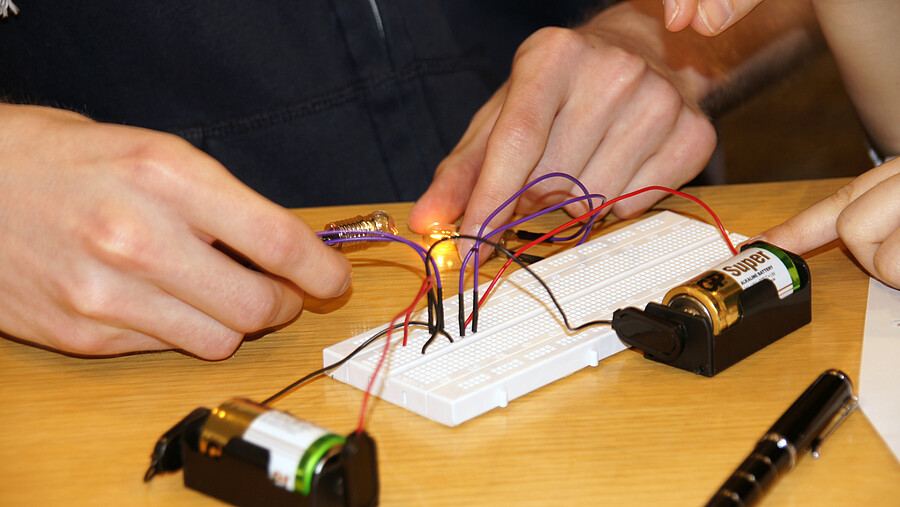Electrical Engineering as subject in the Master’s Teacher Training Course for Technical Education
(Master of Education)
Profile
German HZB: none
International application: German C1
Find out more
A school internship lasting at least four weeks must have been completed at a school of vocational education.
Stay abroad possible, but not obligatory.
Short Description
Electrical Engineering is offered as a vocational subject within the degree programme Master’s Teacher Training Course for Technical Education. In addition, a second teaching subject must be studied.
Within the vocational subject area of Electrical Engineering, students gain the specialist and teaching methodological skills required as a basis for teaching in technical education.
In the specialist area, students initially develop their skills in communications and power engineering, focusing on content that is highly relevant to the vocational area. Furthermore, students acquire the foundations of control engineering and deal with application-related content from one of three areas of specialisation (automation technology, power engineering or microelectronics).
The area relating to teaching methodology initially involves designing teaching material and testing the use of this material. They then develop their teaching methodological skills further by planning, implementing and evaluating a teaching unit, with teaching methodological support, at a vocational school. The IT skills gained at the Bachelor’s stage are taken up and expanded on with additional concepts in a class-like situation (object-oriented programming, graphic programming).
Course Content
- Automation technology
- Microelectronics
- Power engineering
Students complete the following specialist modules during the degree programme:
- Communications Engineering for Technical Education (foundations of communications engineering and communications technology, OSI reference model)
- Power Engineering for Technical Education (transformation processes, transmission and use of electric energy, installation technology)
- Control Engineering (foundations of control engineering)
- Specialisation module (application-oriented expansion of the foundations in one of the three areas of specialisation (Power Engineering, Automation Technology or Microelectronics))
Furthermore, students complete the following teaching methodology modules:
- Teaching Methodological Practice I (design and preparation of teaching material)
- Teaching Methodological Practice II (lesson planning, implementation and evaluation, teaching plans, teaching methodological aspects of programming, advanced concepts of programming)
In order to register for the Master’s thesis, students must provide evidence of having completed 52 weeks of practical training; successful completion of an apprenticeship in a related apprenticeship trade is recognised as practical training.
- To the module catalogue (German langage only)
In addition to the skills required in the teaching profession (e.g. an interest in imparting knowledge, enjoyment of teaching, the ability to work under pressure, patience and empathy), in the area of Electrical Engineering students should also possess strong powers of imagination and abstraction, an interest in mathematical and technical issues and the ability to think logically.
- Teaching at a vocational school (vocational school, vocational grammar school, technical school)
- Teaching activities for in-company training and further training
Admission Requirements
An undergraduate degree in a related field of study, such as
For master's degree programmes with unrestricted admission, all applicants who fulfil the admission requirements will be admitted a university place. The exact admission requirements can be found in the admission regulations:
Application Deadlines
First-year students (application from non-EU countries: VPD from uni-assist is required)
- 1 June – 15 July of the year for the winter semester
- 1 December – 15 January of the year for the summer semester
Students resuming their studies and transfer students (application in a higher semester, application from non-EU countries: VPD from uni-assist is required)
- 1 June – 15 July of the year for the winter semester
- 1 December – 15 January of the year for the summer semester
Do you have questions about studying? We are happy to help!

30167 Hannover

30167 Hannover













